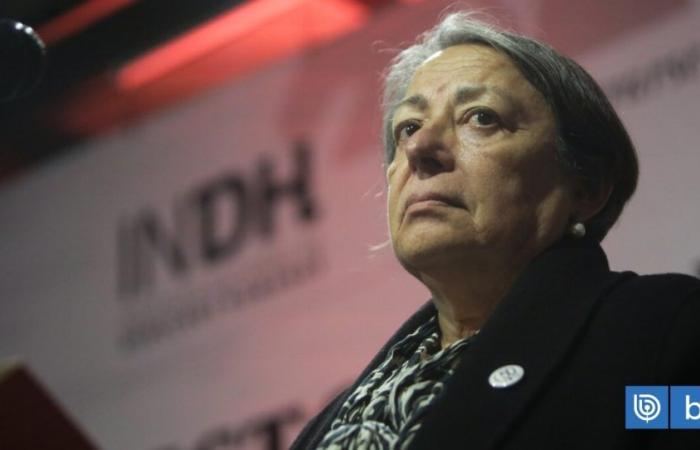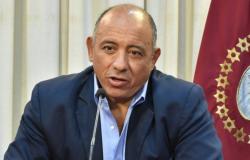
Civil justice will be the one to carry out the proceedings for the alleged illegitimate coercion and illegitimate coercion resulting in homicide, in the context of the fatal training march of the Motorized Brigade No. 24 “Huamachuco”, at which time he lost his life. Franco Vargas.
After several postponements, the Supreme Court finally defined the jurisdiction of the Conscriptos de Putre case and left the investigation of the death of Franco Vargas in the hands of civil justice, rejecting the request of the visiting minister, Jenny Book, and the military prosecutor’s office, which requested that the military justice system be in charge of investigating.
In this way, it will be civil justice that will carry out the proceedings for the alleged illegitimate coercion and illegitimate coercion resulting in homicide, in the context of the fatal training march of the Motorized Brigade No. 24 “Huamachuco.”
This decision was valued by the director of the National Institute of Human Rights (INDH), Consuelo Contreras, who maintained that “as an institute we can say that it is a triumph for human rights.”
“Today, the people of Chile are more protected in their rights than yesterday. Today, the victims of the violation of human rights, the conscripts who participated in the march, the mother of Franco Vargas, will be able to have access to impartial justice,” she added.
Along the same lines, the Public Ministry also evaluated the ruling. The regional prosecutor of Arica and Parinacota, Mario Guerrero, pointed out that “we had arranged the exhumation of Franco’s body, an issue that was paralyzed at the request of the military prosecutor’s office, at the time. “We are going to resume all these types of procedures and we are going to request the exhumation of the body, and to be able to carry out those tests that are relevant to us.”
Likewise, the Minister of the Interior, Carolina Tohá, commented that “all governments, without exception, including those on the right, have made progress in expanding the field of jurisdiction of civil justice, and leaving military justice to very limited cases.”
Meanwhile, Franco’s mother, Romy Vargas, who asked on several occasions that her son’s death be investigated by civil justice, expressed that “I am hopeful that this will have justice and will not go unpunished, like them.” They were looking for (…) They were not people, they were monsters with these children and they have to pay for all the damage they did.”
Civil justice will be the one to carry out the proceedings for the alleged illegitimate coercion and illegitimate coercion resulting in homicide, in the context of the fatal training march of the Motorized Brigade No. 24 “Huamachuco”, at which time he lost his life. Franco Vargas.
After several postponements, the Supreme Court finally defined the jurisdiction of the Conscriptos de Putre case and left the investigation of the death of Franco Vargas in the hands of civil justice, rejecting the request of the visiting minister, Jenny Book, and the military prosecutor’s office, which requested that the military justice system be in charge of investigating.
In this way, it will be civil justice that will carry out the proceedings for the alleged illegitimate coercion and illegitimate coercion resulting in homicide, in the context of the fatal training march of the Motorized Brigade No. 24 “Huamachuco.”
This decision was valued by the director of the National Institute of Human Rights (INDH), Consuelo Contreras, who maintained that “as an institute we can say that it is a triumph for human rights.”
“Today, the people of Chile are more protected in their rights than yesterday. Today, the victims of human rights violations, the conscripts who participated in the march, the mother of Franco Vargas, will be able to have access to impartial justice,” he added.
Along the same lines, the Public Ministry also evaluated the ruling. The regional prosecutor of Arica and Parinacota, Mario Guerrero, pointed out that “we had arranged the exhumation of Franco’s body, an issue that was paralyzed at the request of the military prosecutor’s office, at the time. “We are going to resume all these types of procedures and we are going to request the exhumation of the body, and to be able to carry out those tests that are relevant to us.”
Likewise, the Minister of the Interior, Carolina Tohá, commented that “all governments, without exception, including those on the right, have made progress in expanding the field of jurisdiction of civil justice, and leaving military justice to very limited cases.”
Meanwhile, Franco’s mother, Romy Vargas, who asked on several occasions that her son’s death be investigated by civil justice, expressed that “I am hopeful that this will have justice and will not go unpunished, like them.” They were looking for (…) They were not people, they were monsters with these children and they have to pay for all the damage they did.”





